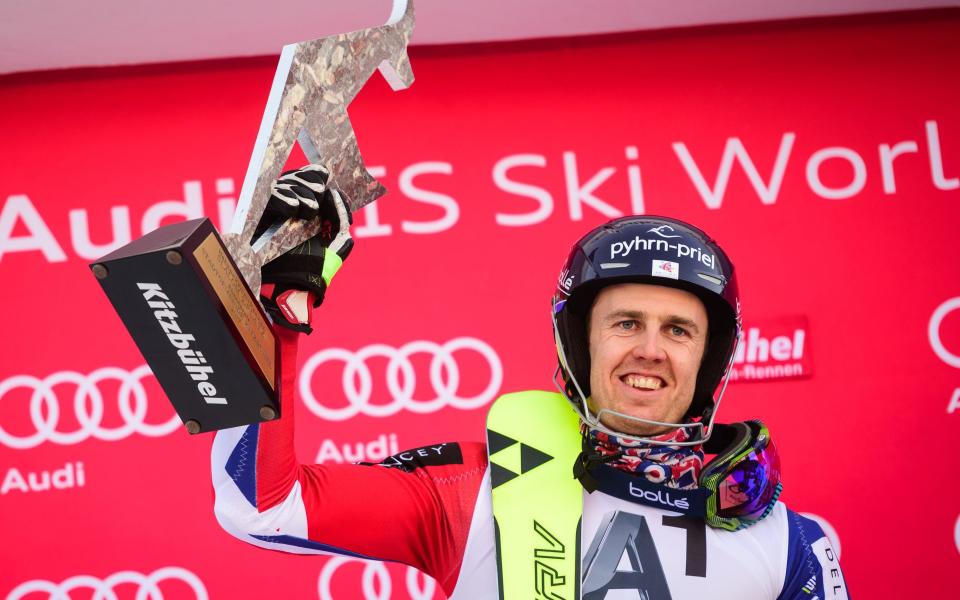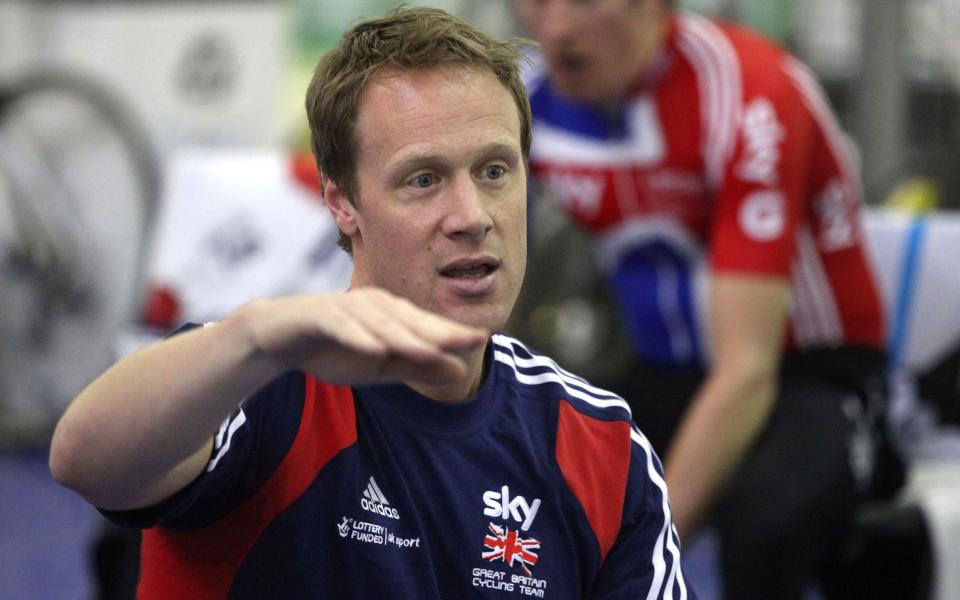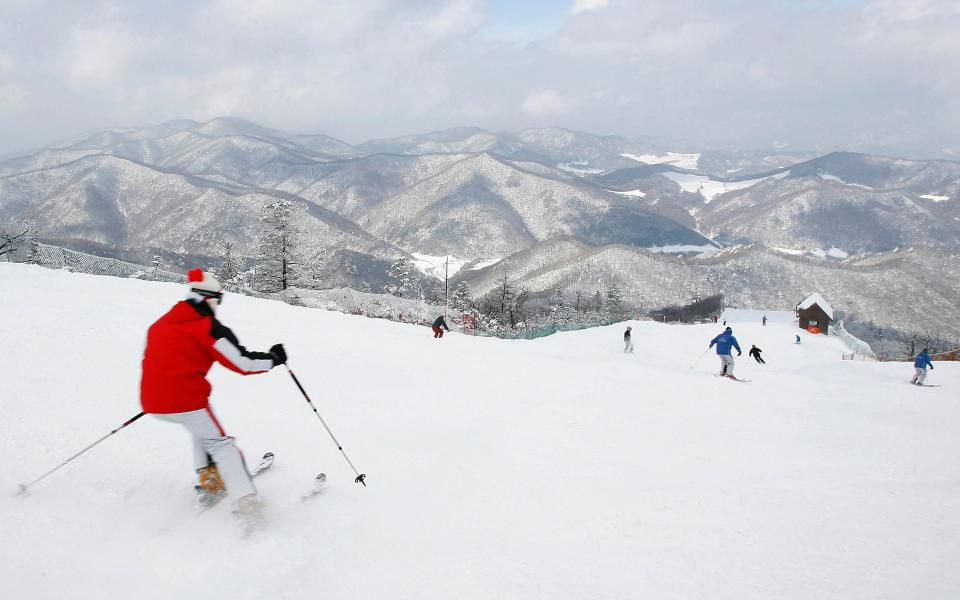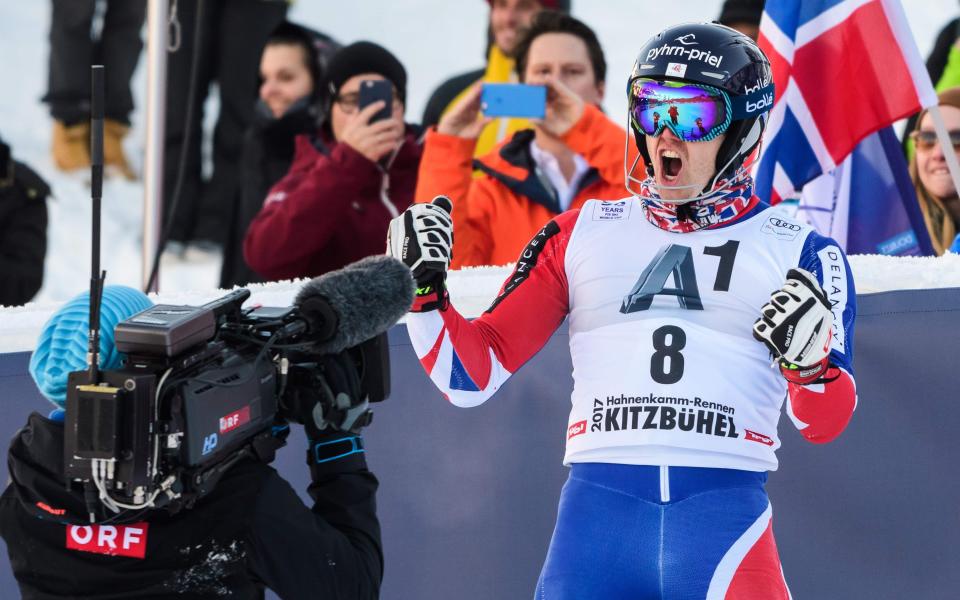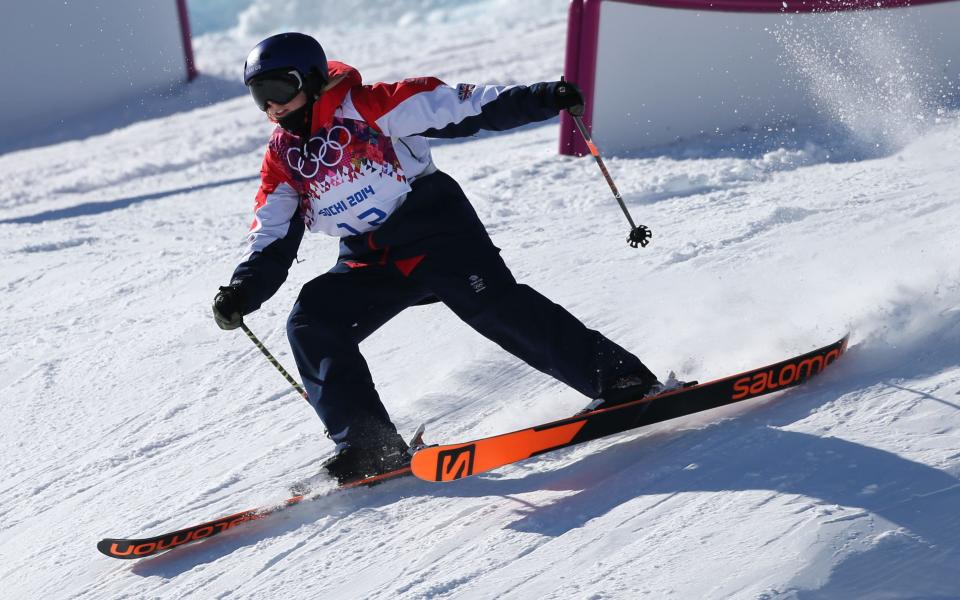Revealed: Plan to turn GB into snow sports superpower
He helped Great Britain’s cyclists conquer the Olympics and and the Tour de France before attempting to transform the fortunes of England’s footballers.
Now, Dan Hunt has set himself arguably his loftiest goal yet: to make Britain a top-five ski and snowboard nation in little over a decade.
The new performance director of British Ski & Snowboarding revealed the governing body’s long-term vision exactly a year out from the next Winter Olympics, saying: “Someone once said to me that you never understand how big Everest is until you’re stood at base camp.” Hunt’s Everest is the 2030 Games, by which time he plans to take a country that needed 90 years to win its first Olympic medal on the snow and make it one capable of claiming up to 12 in a single go.
That happens to be the exact number Britain’s cyclists won at London 2012, the second and most recent of Hunt’s Games as a coach, after which he joined Team Sky as sporting director before being poached to become the Premier League’s head of elite performance.
Only 10 weeks into his new job, he insisted transforming Britain into a top-five ski and snowboard nation inside 13 years was an achievable aim.
“It’s a step-change in our level of ambition but we’ve made sure we’ve put the timescale on it to be attainable, whilst still being very, very challenging,” he added.
The main barrier to the success of this plan appears self-evident: the lack of snow across the UK.
That would seem to limit the talent pool Britain has to choose from mainly to those whose families can afford expensive holidays to the likes of St Moritz.
But where most would see only an obstacle, a man who built his reputation on helping Sir Dave Brailsford identify ‘marginal gains’ sees an opportunity.
“One of the challenges we face is lack of snow but one of the opportunities we have is that we have a blank canvas to try to develop people from first-principles upwards,” said Hunt.
Proof that could work arrived barely two weeks ago when Dave Ryding, who learnt to ski on dry slopes, won World Cup silver, Britain’s best alpine result in 35 years.
“What I think that a Dave Ryding, for example, has done is completely blow the myth out of the water that in order to be competitive on a world scene, you have be Austrian or Swiss and you have to have been born with skis on your feet,” Hunt said.
But he admitted you did need “money”, considerably more for equipment and training facilities than for many other sports.
And, unlike cycling, snow sports barely register when it comes to the millions of pounds in public funding ploughed into the pursuit of Olympic medals.
Only BSS’s ‘Park and Pipe’ programme – which works with elite athletes – currently qualifies for UK Sport cash, thanks in part to Jenny Jones finishing on the podium at Sochi 2014, the first Briton ever to do so on the snow.
At a time when even sports which medal are being stripped of all their funding, that £4.9 million over four years is suddenly under threat.
Two fundraising initiatives are now in place to bankroll the BSS’s vision: the British Snowsports Fund and the British Ski and Snowboard National Foundation
The first was launched at the start of the season and relies on donations from the country’s recreational skiers and snowboarders when they book their holidays or buy their gear.
The second is a grant-making charity which will provide financial support for talented young skiers and snowboarders to cover costs such as competition travel and accommodation, coaching and equipment.
The journey to 2030 starts in earnest a year today, when Britain will aim to complete their most successful ever Winter Olympics, including on the snow.
Hunt refused to set a precise medal target for Pyeongchang 2018 but reeled off a list of contenders as diverse as Ryding (alpine) and Andrew Musgrave (cross-country) on the one hand and James Woods, Katie Summerhayes, Katie Ormerod, Billy Morgan and Jamie Nicholls (slopestyle) on the other.
Hunt said: “That’s not to say that we’ll convert all of those podium opportunities into medals, but I think that’s where our opportunities lie at the moment.”
Britain’s medal hopes across the entire Olympics would doubtless be boosted were Russia to be thrown out of the Games for orchestrating the biggest doping scandal in history at Sochi 2014.
Despite describing some of what emerged from an explosive report into the rogue nation’s state-sponsored programme as “hair-raising”, Hunt refused to add his voice to calls for it to face the ultimate punishment.
Instead, he was focused on a 13-year plan he revealed would not target success in the small number of the 48 events for which he was responsible but seek to make Britain contenders across the board.
“I’ve only been here 10 weeks but there’s a very palpable buzz around the place that wasn’t there in November, that these guys on the circuits are now generating results, they’re generating interest, they’re generating confidence and belief that, actually, you know what, Great Britain can be competitive in the winter sports, it can be competitive in snow sports,” he said.
For Hunt’s vision to become a reality, Britain may even need to finally unearth a talent in the discipline which produced the country’s most famous ever Winter Olympian – albeit for all the wrong reasons.
Raising the spectre of Eddie ‘The Eagle’ Edwards, Hunt said: “There’s no reason why, in the future, we shouldn’t be establishing a ski-jumping programme.”
Five disciplines being targeted for medals
